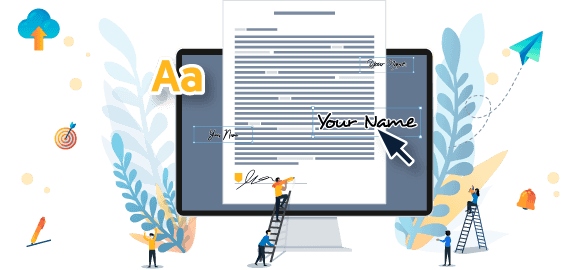Dominic is the CEO of Lawpath, dedicating his days to making legal easier, faster and more accessible to businesses. Dominic is a recognised thought-leader in Australian legal disruption, and was recognised as a winner of the Australian Legal Innovation Index and recently a winner of the LexisNexis 40 Under 40 (APAC).
An electronic signature, or an eSignature, is any electronic means indicating a person’s authorisation or consent to a document. Also known as digital signatures, these can involve you simply typing your name, inserting a photo of your signature or drawing it on your screen. In this article, we’ll cover the basics of what electronic signatures are and answer some common questions.
1. It is legally binding?
eSignatures have been legal since 1999 in Australia. As online data sharing has become more secure, so too has the security of signing documents online. eSignatures have been legally binding since the enactment of section 10 of the Electronic Transactions Act 1999 (Cth).
2. What can you use e-signatures for?
You can use an eSignature in many different circumstances, for example to sign and send formal correspondence, policies and even contracts. They can also be used in satisfying a requirement by a law of the Commonwealth or State for a signature, unless there is an exemption that eSignatures are not valid.

3. What are the requirements for an eSignature to be valid?
There are three things you need in order for an eSignature to be valid:
Intention
There has to be a method which identifies the person signing, and indicates that person’s intention.
Reliability
The method of identification must be reliable and appropriate.
Consent
Both parties must consent that using eSignatures satisfies the requirement. If both parties exchange a contract through email, this will be assumed.
4. Is it safe?
Absolutely. With many of the Fortune 500 companies, including Google and Time Warner, and also the United States Army using eSignatures, you can be sure that your personal documents and e-signatures are safe. Documents eSigned are mostly encrypted and leave a paperless audit trail. These documents are also much easier to store and locate later. You won’t have to worry about finding that contract you had lying around for 3 years somewhere in the house.
Potential risks
Similar to handwritten signatures, there is also the risk that an eSignature can be forged. However, encrypted eSignatures that are stored safely online are less susceptible to forgery than handwritten signatures. It’s important when using an eSignature that you do so within a platform or piece of software that also protects your data. An additional step you can take is to keep your signature in a password-protected folder on your laptop or phone.
Finally
eSignatures are a modern and convenient way to sign documents. In recent times, eSigning has in fact become necessary as more people work remotely. As with signing any document, you should be mindful of what you’re signing. This is because eSignatures are just as enforceable as handwritten ones.

Get a fixed-fee quote from Australia's largest lawyer marketplace.







